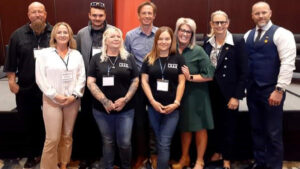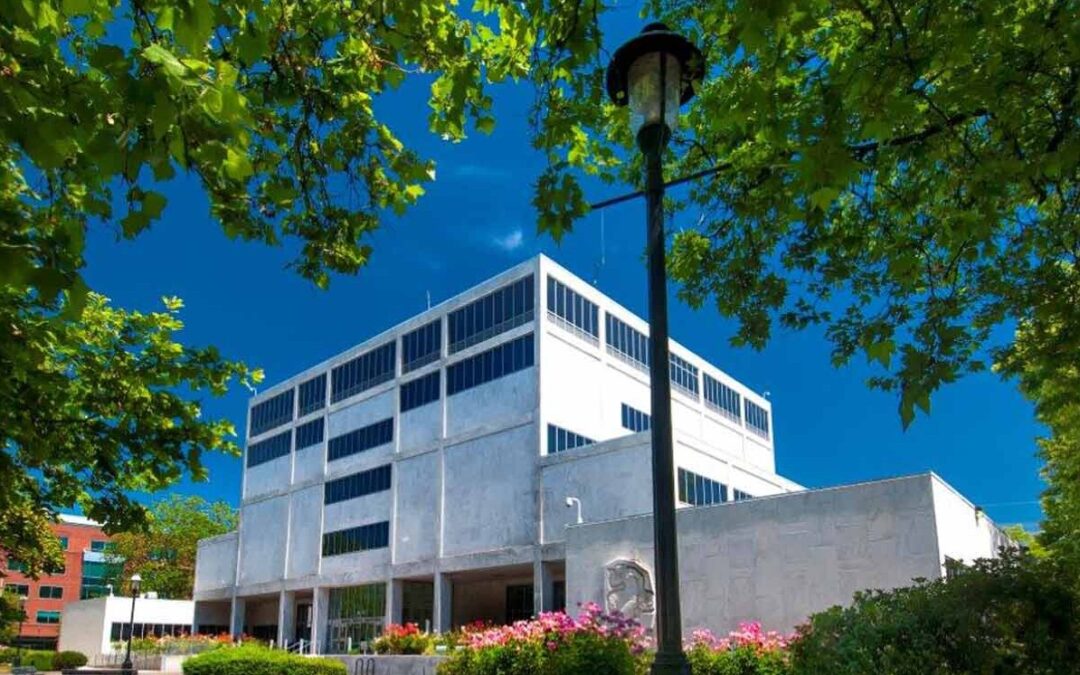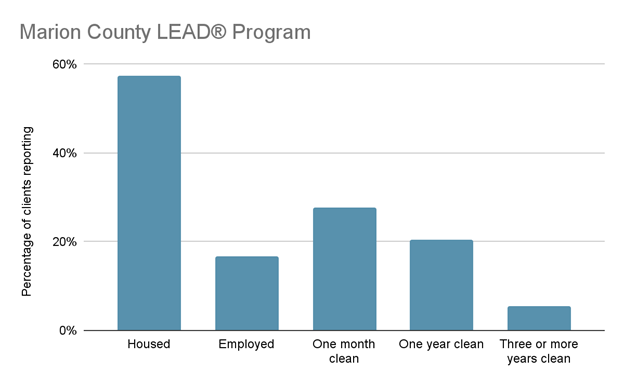The Oregon Behavioral Health Deflection Program, established at the Oregon Criminal Justice Commission (CJC), is intended to re-establish local partnerships between law enforcement and the behavioral health safety net to effectively connect individuals to treatment and recovery while minimizing costly interactions with the justice system.
Twenty-three Oregon counties opted in to receive fast-tracked funding to stand up deflection programs, two of which applied as a consortium. While most counties are in the early planning stages, a few counties have been already assisting individuals facing mental health and addiction challenges through deflection programs.
AOC is running a series of articles in Oregon Trails to explore existing deflection initiatives, their successes, challenges, and how counties are preparing for the new drug related misdemeanor effective on Sept. 1.
Established in 2018, Marion County’s Law Enforcement Assisted Diversion (LEAD®) program provides community members access to services aimed at reducing recidivism. Based on the national LEAD® program model which started in Seattle, Marion County’s deflection program is initiated by either law enforcement in lieu of making an arrest, or through community referral based on an individual’s history of behavioral health conditions.
 Residents in Marion County’s large rural areas often face challenges in accessing traditional services, including support for substance use disorders and mental health challenges. Local law enforcement officers in these rural areas, though well-acquainted with their communities, may not have the same resources as their urban counterparts. By collaborating with the LEAD® program, officers can link these residents to needed services. LEAD® Navigators work with officers to provide targeted outreach and integrate individuals into the program. Individuals are referred by law enforcement to LEAD® by arrest diversion, instead of making an arrest, or social referral based on history of behavior and conditions vetted by an informed group. The program offers 24/7 support, ensuring assistance is available across Marion County, filling gaps left by other programs.
Residents in Marion County’s large rural areas often face challenges in accessing traditional services, including support for substance use disorders and mental health challenges. Local law enforcement officers in these rural areas, though well-acquainted with their communities, may not have the same resources as their urban counterparts. By collaborating with the LEAD® program, officers can link these residents to needed services. LEAD® Navigators work with officers to provide targeted outreach and integrate individuals into the program. Individuals are referred by law enforcement to LEAD® by arrest diversion, instead of making an arrest, or social referral based on history of behavior and conditions vetted by an informed group. The program offers 24/7 support, ensuring assistance is available across Marion County, filling gaps left by other programs.
Eight other counties are exploring similar LEAD® programs for their communities — Baker, Clackamas, Clatsop, Columbia, Crook, Deschutes, Hood River/Wasco, and Lane counties.
On May 9, a HB 4002 Implementation and Training Symposium was held in Salem, sponsored by the Oregon District Attorneys Association, Oregon State Sheriffs’ Association, Oregon Association of Chiefs of Police, League of Oregon Cities, and the Department of Public Safety Standards and Training. Among other presenters, Marion County’s LEAD® Program provided in-depth training on their program to aid other counties considering developing their own deflection programs. View resources and videos of the symposium here.
Marion County’s LEAD® program collaborates with a wide range of partners, including public safety, health, and justice agencies, as well as organizations offering outreach, case management, housing, transportation, and treatment services. The collective efforts of these partners is essential for achieving long-term success.
According to the Marion LEAD® Program newsletter (November 2023), performance measures show that the program is making significant impacts (see table below).
More recent data shared by Marion County show similar trends. Of the 19 clients in the first cohort (entered program in 2018-19) who participated in a follow-up assessment, 52.6% are housed, 47.4% are employed, and 47.4% report a good quality of life.
In anticipation of an increase of clients after Sept. 1, Marion County is planning to expand the LEAD® program by hiring additional staff. Currently, the program has three fully trained Navigators and one in training. An additional Navigator, as well as a management analyst is needed to manage the expected increased workload.
Marion County meets the large majority of the statutory requirements to access the deflection program grants through the CJC but will need to update their systems to the REDcap data collection software that the CJC is using for standardized implementation of the participating deflection programs. The program is also planning to reinstate its mobile crisis intervention teams, which were discontinued April 1, due to lost funding. The reinstated mobile crisis team will allow for law enforcement and a mental health clinician to co-respond to crises in the community.
Marion County, like all Oregon’s counties, play a critical role in connecting individuals to treatment and recovery through partner engagement and relationship building. AOC held a deflection program summit on March 18, to help county commissioners and local partners understand the CJC’s program requirements and timeline. The summit’s plenary and regional break-out session recordings and materials are available in the AOC archive.
AOC will convene the CJC, county commissioners, and local deflection partners as needed through the summer and fall to assist in program planning and implementation. Please contact Jessica Pratt or Jen Lewis-Goff to receive those meeting notifications.
Contributed by: Erin Good | Communications Coordinator


